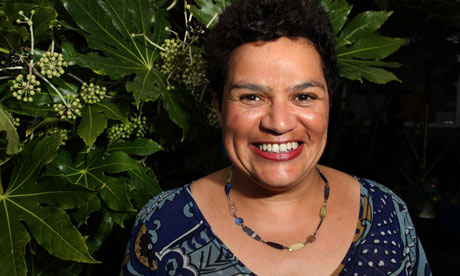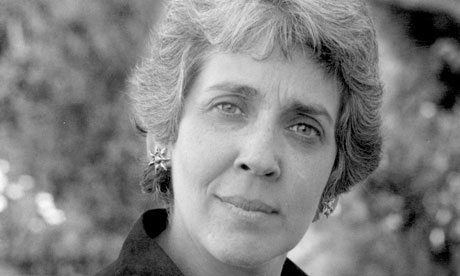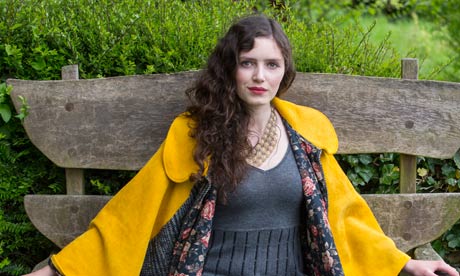I tweeted on Saturday afternoon that one of the things I love about Jersey Festival of Words is the number of non-fiction writers who also happen to be female who are hosted by the festival. In 2015, I saw Rachel Bridge, Irma Kurtz, Ella Berthoud, Jane Hawking and Dr Gilly Carr. This year, it’s Anne Sebba, Cathy Retzenbrink, Kat Banyard and Sarah Turner aka The Unmumsy Mum.

Kat Banyard takes to the Opera House stage along with former sex worker Diane Martins on Saturday afternoon. They’ve come to discuss the ‘uncharted territory’ society finds itself in following the ‘huge and unprecedented expansion of the global sex trade’.
In her book Pimp State, Banyard discusses each area of the sex trade but for this event, he focuses solely on prostitution, looking at ideas around power, money, equality and policy choices. She states that ‘the global sex trade affects everyone’ as the trades weave themselves into the fabric of society. This promotes a message about the ways in which it’s acceptable to treat another human being.
Banyard reiterates much of the ground covered in the book with regards to sex buyers and their views; the women who become sex workers; those who control the trade, and the different legal stances, from legalisation to the Sex Buyer Law.

Diane Martins supports women exiting the sex trade and campaigns to end demand for sexual exploitation through implementation of the Sex Buyer Law. She tells us her story, which you can read here.
She has some interesting things to say about the work she does with women exiting the trade, in particular. She talks about the disassociation she felt and other women often feel from their bodies, ‘My vagina’s not attached to me by velcro’ and how powerful words are, ‘The power of words is so strong. You’re worth nothing. You’ll do as I say. This is what your life is’. But she hopes that her words can help impart hope and change ideas.
Both Martins and Banyard comment on the Home Affairs Select Committee they were asked to give evidence at with regards to prostitution laws. The committee was chaired by Keith Vaz, who was later revealed to be a sex buyer himself. Diane talks about how vulnerable some of the women who gave evidence were and how difficult revelations like this make it for them to talk about their experiences.
Banyard ends by saying that men take experiences of the sex industry into other areas of their life: work and home.

Photograph by Yasmin Hannah
On Saturday evening, the Opera House plays host to Sarah Turner aka The Unmumsy Mum, who’s interviewed by some blogger from the north of England. It’s difficult to talk about an event when you’re the person on stage asking the questions, but Turner’s fantastic: funny and honest. Her audience of 300 parents (mostly mums) roar with laughter as she talks about wanting to put the kids up on eBay, not having a kitchen with an island, the milking incident and What Would Ruth Do?
The two events everyone was talking about though, happened on Saturday morning at the same time – Michael Morpurgo in the Opera House and Cathy Rentzenbrink in the Arts Centre. Obviously, I was at the Arts Centre (although I did run the length of St Helier to get a signed copy of Morpurgo’s latest book for the ten-year-old).
Rentzenbrink’s interviewed by Paul Bisson, Vice Chairman of the festival. I mention this because Bisson’s first question is about interviewing as Rentzenbrink often interviews writers and chairs panels (she chaired both the thriller panel and the history panel at the festival this year). She says she’s become a better interviewer now she’s on the receiving end of it. She used to accidentally be a little bit casual, not wanting to gush over writers. Now she tells them if she loves their work. She also comments that not everyone who interviews you prepares and sometimes you realise twenty minutes into the interview…
Bisson says there’s an irony in her saying in The Last Act of Love that she didn’t want to be known as ‘coma girl’ and now she’s known for her memoir about it. She says there’s dealing with the thing and dealing with how to communicate the thing and she feels a great sense of relief now she’s on the record about what happened and who she is. ‘I’ve wrestled it into a book,’ she says. She jokes that if anything were to happen to her husband and she has to return to dating she can use the book as an introduction, ‘Read it and see if you can be bothered to take me on’.

How big Rentzenbrink’s book would be if it contained the whole truth.
She talks about the truth of the events, saying that ‘the written version becomes the true version’ and that although ‘there’s nothing in [the book] that’s not true’ there are omissions. These fall into two categories: people involved who didn’t want to be written about and things that were removed during the editorial process.
One of the reasons Rentzenbrink wrote the book was the misunderstandings around comas. She says they’re very clean on television, you either wake up or die. She quotes Henry Marsh, author of Do No Harm, who says that it’s easy to save someone’s life with emergency brain surgery but that they’ll almost never recover. He uses the phrase, ‘The collateral damage to the family’. Rentzenbrink says that she used to think she was crazy and mad but has since realised she’s not, it’s the events that happened to her.
However, there are many moments in the book which are funny. ‘Tragedy is funny because if you couldn’t find funny you’d die on the spot,’ she says. She tells us that she got the giggles at Matty’s funeral because she thought his friends were going to drop the coffin in an Only Fools and Horses type moment.
She talks about living and working in the family pub. How people who drink in pubs are very funny but that measuring your drinking habits against them when you’re seventeen isn’t advisable. However, she credits the pub with preventing the family from the isolation they might have suffered on bringing Matty home if they’d been living in a house. She also comments on how many people seem to miss the class element of the book. ‘I love my journey from Snaith Ladies Darts Team at sixteen to the main stage at Cheltenham Literature Festival.’
On writing Rentzenbrink says, ‘I think all of writing is about self-doubt management’. She mimics herself typing, squinting at the keyboard. She says it’s only in the editing she thinks about the reader but because of her work in prisons with men who don’t read well, she’s aware of a need to make books accessible for a wide audience. She wanted to take something complex and make it simple. While editing The Last Act of Love she became very aware of the lack of books on the subject of persistent vegetative states and pictured a builder who’d never read a book reading it. This led to her editing for clarity and deleting a whole thread about her response to a range of books. ‘That man does not need to read me twatting on about Julian Barnes.’
It’s so easy for memories to be overtaken by a decaying body, she says. Writing the book helped her to remember what Matty was really like. ‘I remember new things about him all the time. He feels completely real to me now in a way I thought I’d lost him. He sort of talks to me. It might be him, wouldn’t turn that down. I think it’s my memory having a conversation with itself.’ He’s encouraging, sweary and gives career advice. He’s fondly critical and calls Rentzenbrink to account with comments like, ‘What the fuck are you worrying about that for, you crazy bitch?’
There’s a theme of religion running through the book. Rentzenbrink describes herself as ‘a hopeful agnostic. I like a bit of smells and bells. I like married clergy, love being the answer and all’. She wonders why she doesn’t allow herself to go to church and thinks religion hasn’t caught up with medical developments. She was scared that religions people would be angry about the book and the decision her family took.
Rentzenbrink says that she considers herself a case study but doesn’t want to be a spokesperson for euthanasia. ‘Almost all of those arguments reduce the human.’ She says raising awareness is a great thing but, ‘I like the book to do that’. She says more cases have gone to court because of the book, people didn’t know it was an option.
She’s currently editing her second book, a non-fiction work called A Manual for Heartache which is about loss and grief more generally. She says if you remain silent people think you’re alright but when you’re honest, people say ‘me too’.
She’s also writing a novel. Doing so has liberated her from the need to tell the truth. She ends by saying that thinking about other people’s books, which she does for her Contributing Editor role at The Bookseller, ‘keeps me sane’.














